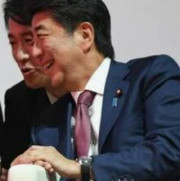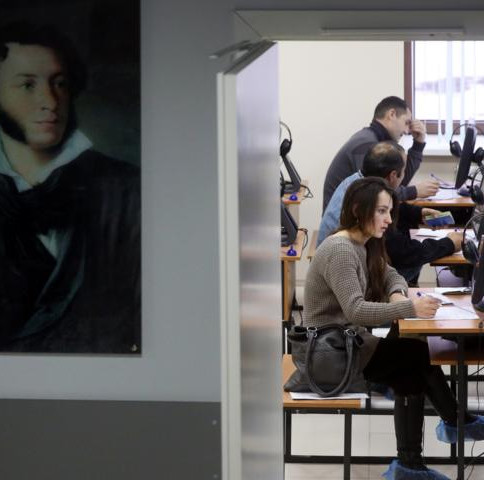But in reality anything may happen, including unexpected complications. For example, it happened at a NATO Summit in Bucharest (Romania) on April 2-4 that initiated the third phase of expansion. A routine work with “patients” that successfully started with the approval of official invitations to Albania and Croatia, suddenly faced expressed reluctance of certain founding states of the Alliance to agree with the proposal of the White House on Ukraine and Georgia. Germany, France, Italy, Spain, the Netherlands, Belgium, Portugal and Luxemburg disagreed with participation of Tbilisi and Kiev in the NATO Membership Action Plan. Secretary General Jaap de Hoop Scheffer had to politely state that the US-sponsored “special proposal” to the two former Soviet Republics was “premature”.
Experts already pointed out that the discomfiture associated with the opposition to the Washington’s initiative occurred against the background of distinctly manifested aggravating problems inside the Alliance, which many members are displeased with the US ambitions to impose its vision of goals, tasks and prospects of the Organization on the allies. In the opinion of certain NATO member-states the American policy may draw the NATO Mission in Afghanistan into a protracted military conflict. Moreover they emphasize that the 7-year-long crisis in the Middle East demonstrates inability of the US-oriented Alliance leadership to foresee development of the situation and distinctly formulate and efficiently fulfill strategic tasks addressing the contemporary challenges. More and more nations believe that its is necessary first of all to perform structural reforms in the Alliance and strengthen security of its member-states instead of expanding the Alliance eastwards. Experts and politicians believe that in this situation the crisis inside NATO (or very serious prerequisites of the same) becomes more and more apparent.
The United States understands the fact of “the potential failure”. However, America used to be a leader directly governing “vital” decision-making. Therefore on a “to put a brave face on a sorrow business” basis Washington makes efforts “to keep its front going” and diversify its tactics. In so doing it often uses its favorite information technologies including PR tools.
The logic here is both simple and “sophisticated”: if the United States has its own problems, it is necessary to make the world believe that they do not exist, and simultaneously convince the international community that it faces other more serious “threats”, i.e. to shift the public attention from real problems to those artificially created and escalated by the USA. In this particular case its looks like there are no US failures, disagreements in NATO and efforts “to tack” Georgia and Ukraine on the Alliance but there is “a sincere wish” of the West “to defend young democracies on the post-Soviet space” against “neoimperialism” of Russia.
The United States has all professional “special knowledge” and “special skills”. It is proved by an information show played with pathos by the White House in particular in Transcaucasia.
Initially, “independent and impartial” American and European press convinces the world public opinion that 73 per cent of the Georgian people “are eager” to join the North Atlantic Alliance (which is confirmed with the results of “the most fair and objective” referendum held in this country in January 2008).
Then, in accordance with the rules of the game and PR-technologies the world community is warned that “the freedom and independence” are “in danger”. “The NATO leadership believes that the declared intentions of Russia to develop closer cooperation with “separatists” in Abkhazia and South Ossetia “make a threat to the territorial integrity of Georgia”. The activities of the Russian troops in this region also cause concern”.
Conclusion: “On May 20, the US Senate Committee on Foreign Relations approved a resolution blaming on Russia for “its efforts to undermine territorial integrity of Georgia”. The document reads that “dissatisfaction of Russia with rapprochement of the Republic of Georgia with NATO caused dangerous escalation of military tension and economic boycott on the part of the Russian Federation in order to frighten Tbilisi and undermine its positions”. In this connection Senator Richard Lugar, a senior US Senator from the Republican party, believes it necessary “to launch an active international diplomatic counteroffensive against the efforts of Russia to destabilize Georgia and the entire region”. As quoted to this respectful congressman “a peaceful solution of the confrontation will require leadership on the part of the United States and participation of other NATO member-states in this process”.
But the United States stopped being own self if it would not try to put its true intentions into a shape of collective efforts. For this purpose, Washington has dignified “assistants standing at the desk” of the American PR-operations (according to Senator Lugar, “a majority of the Georgian young leaders has got education in America, and as soon as they came to power they immediately started integration into the Western institutions”). For example, Georgian President Mikhail Saakashvili educated in the United States (US Congress scholar, Master of Law – the Columbia University, New York, 1994, PhD - the George Washington University, Washington, 1995) rather professionally uses the United Nations, Council of Europe and OSCE for public presentation of а keynote idea of “the Song of the Georgian Guest” to the world community: “Guileful Russia again broods over malicious plans of a military aggression against a small and defenseless country. Murder! Help!” Georgian Foreign Minister Ekaterina Tkeshaleshvili declaims her role with enthusiasm in unison with Saakashvili: “Escalation of the situation in Transcaucasia becomes dangerous. It is caused by the actions of the Russian side. The Russian peacekeepers became a factor of risk”.
In so doing they conceal the fact that it is the presence of the Russian peacekeepers in the region that became a guarantee of bloody conflict cessation and further maintenance of peace and stability in this part of the world.
The US “creative make-up designers” do not mention it. They do not need these facts because Washington once again is not seeking the truth but solving its own task. And there is no place for the truth when the matter in question is an anti-crisis PR of the American style.









